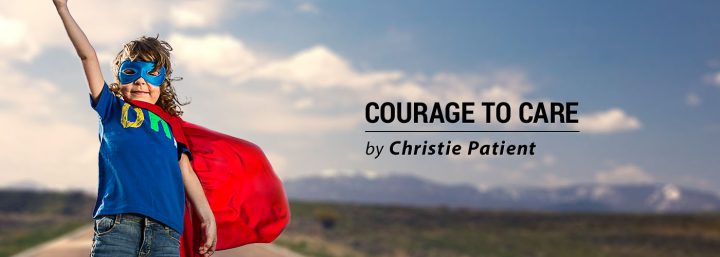Howling for Healthcare and Hospital Heros
Written by |

Now more than ever, healthcare workers and hospital employees are being applauded for their work. Even in the best of times, working in healthcare is not easy. These days, our healthcare systems are stressed because of COVID-19, and medical care looks vastly different than what we are used to. Healthcare workers in the hardest hit locales have had to make heartbreaking decisions as their hospitals reach capacity.
The healthcare structure is challenged even in places that have controlled the spread of the coronavirus. Non-emergent appointments and elective procedures have been canceled. Specialists are being appropriated to help treat COVID-19 patients and cover ER shifts. Volunteers are signing up in scores to help relieve the staff at some of the hardest-hit hospitals on the East Coast.
Healthcare workers show up to work knowing the risks. With shortages of protective equipment, their health and safety are threatened even more than usual. Many go home at the end of the workday knowing that they could be bringing the virus to their loved ones. Their days are long and stressful.
The emotional toll of caring for sick people is huge. Now, with no known cure or effective treatment for COVID-19, there is little comfort for healthcare workers and patients alike. There is so much uncertainty about this disease. Only time and hard work will make things clear. For now, all they can do is try their best and keep a brave face while they’re in the room with a patient.
Around the world, people have been cheering for those on the front lines. I am moved to tears every time I see a video of people stepping outside to cheer for healthcare workers. New York City comes alive each night with applause from the balconies of skyscrapers. An EMT friend of mine shared a video of every available ambulance and firetruck in their district lining up outside the hospital with sirens blaring to salute those coming off shift. Even my small hometown in the mountains has a nightly howl at 8 p.m.
Every person who clocks in at a hospital right now deserves every ounce of that applause. From the hourly employees who do jobs like transport, laundry, food preparation, and janitorial duties, all the way up to the chief of medicine.
When my mom, Holly, was in the hospital, we saw the efforts of selfless healthcare workers every day. For three months in the ICU and one month on the cardiac floor after her lung transplant, my mom’s life revolved around and depended upon those workers.
Nurses who worked 12-hour shifts lead the charge, putting out fires and setting an incredibly high bar for patient care. Doctors and medical interns came in droves during rounds but checked in at least once per day with us amid their other duties. Respiratory techs, nursing assistants, custodians, physical therapists, occupational therapists, radiology techs, phlebotomists, social workers, and pharmacists all became familiar faces. Most of those interactions, even brief ones, were sources of compassion and comfort during our time in the ICU and beyond.
When I read my journals from those days, they are full of gratitude for all the people that kept my mom alive and kept her spirits up. I will never forget the people who showed particular dedication, compassion, love, and spirit. Those who went above and beyond what was expected of them. Those who got us through hard times with humor, song, or gentle kindness. I’ll always remember the standouts, but I wish I had written down the name of every person who spent a shift with my mom. Each deserves their own round of applause.
While my mom was waiting for and recovering from her transplant, my dad, my aunt Shari, or I visited her almost every day. On the few days when she had no visitors, I knew that she was in good hands. She never got lonely or felt abandoned. My mom wanted to share this with those of you who may undergo a transplant during the pandemic. Hospitals are restricting or refusing visitation to prevent the spread of the virus. It may make a scary thing even more daunting to do without your family by your side, but no matter what, you won’t be alone.
These guidelines are tough for everyone, but they are necessary, especially for someone leaving the operating room with basically no immune system. As a patient, you must lean on those around you. Until it’s safe to see your family and friends, your healthcare workers will become your family and friends. They’ll say they’re “just doing their jobs,” but trust me, they do so much more.
Thank you, healthcare workers! I hope you hear our hoots and howls, and know that you’re appreciated.
***
Note: Pulmonary Fibrosis News is strictly a news and information website about the disease. It does not provide medical advice, diagnosis, or treatment. This content is not intended to be a substitute for professional medical advice, diagnosis, or treatment. Always seek the advice of your physician or other qualified health provider with any questions you may have regarding a medical condition. Never disregard professional medical advice or delay in seeking it because of something you have read on this website. The opinions expressed in this column are not those of Pulmonary Fibrosis News or its parent company, Bionews Services, and are intended to spark discussion about issues pertaining to pulmonary fibrosis.




Leave a comment
Fill in the required fields to post. Your email address will not be published.